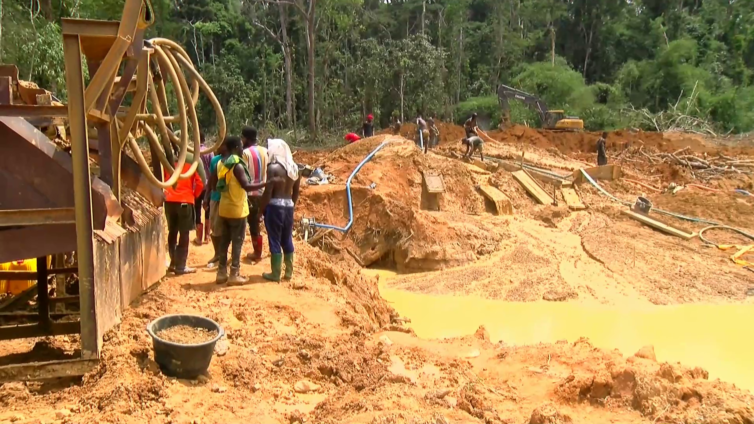The value of Ghana’s gold export receipts for 2022 alone is estimated to be US$ 6.6 billion.
Meanwhile, the revenue accrued declined from US$ 6.779 billion in 2020 to US$ 5.083 billion in 2021. This was attributed to the contraction in gold production, particularly the near-collapse in the volume of gold exports by the small-scale mining sub-sector.
Furthermore, gross receipts from the export of minerals waned from US$ 6.998 billion in 2020 to US$ 5.241 billion in 2021, representing a 25 percent downturn. However, gold exports in 2022 alone was more than the total minerals export value for the previous year.
The development comes on the back of industry expectation for a 12.5 percent increase in the 2022 year under review as output from large-scale gold producers in the country, against the previous year’s gold production of 2.7 million ounces.
The Minister for Lands and Natural Resources, Samuel Abu Jinapor, at a recent press briefing, in Accra, disclosed that, in the small-scale mining space, gold output went up from 3,429.91kg in 2021 to 22,158.25kg in 2022, representing about 550 percent increase.
These among others demonstrate the significance of the 'gold sector’ (particularly the small-scale sub-sector which provides an estimated 40 percent of Ghana’s total gold output, while employing close to some 1 million people) to the national economy.
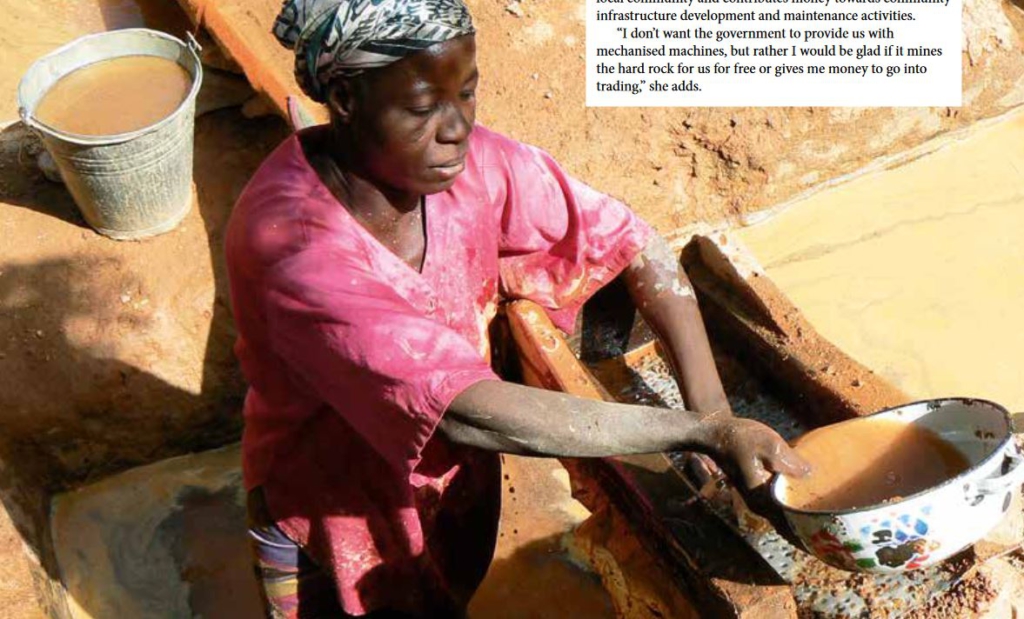
But, despite this, the small-scale mining sector has been fraught with an age-long illegal practice commonly known as ‘galamsey.’ This menace has since brought the ‘second-tier gold production industry’ into disrepute in recent years, notably due to its wanton environmental destruction and pollution resulting from the practice.
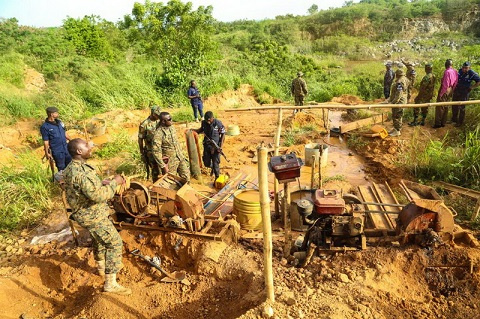
In the face of these challenges, successive governments have tried various interventions, in a bid to end illegal mining which is pervasive in the gold mining regions of the country.
In 2017, the government promised to end the 'galamsey' menace, and subsequently halted all small-scale mining activities and launched intense security operations to clamp down on those involved in the illegal mining operations.
This notwithstanding, the country has yet to witness the end of galamsey activities. At a meeting with the Ghana National Association of Small-scale Miners, Mr. Jinapor said the government remains unrelenting in its efforts to sanitise and regulate the small-scale mining sector.
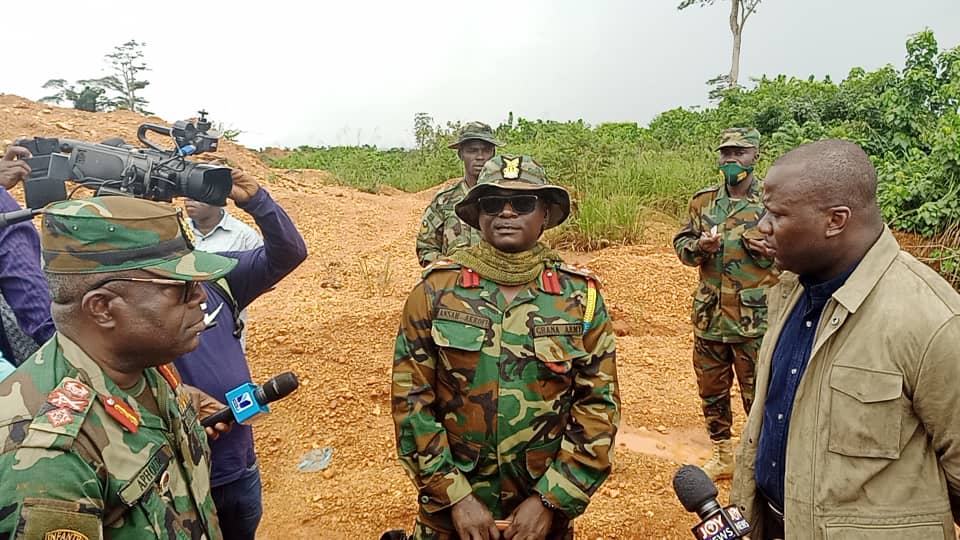
“The government is very mindful of the consequential and important nature of the small-scale mining sector of our country,” he said while also acknowledging the challenges.
This, however, comes on the back of several reformative measures initiated to curb the situation, including the introduction of a mercury-free gold processing technology dubbed, the ‘gold katcha.’
The new technology, comprising crusher, miller, concentrator, and upgrading smelting system, is envisaged to help eliminate the use of mercury to extract gold from the ore. This follows the adoption of the Minamata Convention on Mercury, which enjoins state parties to take measures to reduce and where feasible, eliminate the use of mercury in artisanal and small-scale mining.
At the inauguration of about 100 of these pieces of equipment, last year, the President, Nana Addo Dankwa Akufo-Addo, said it will significantly help to protect the health and lives of small-scale miners, and the natural environment, and above all, protect the population from the debilitating hazards of mercury use.
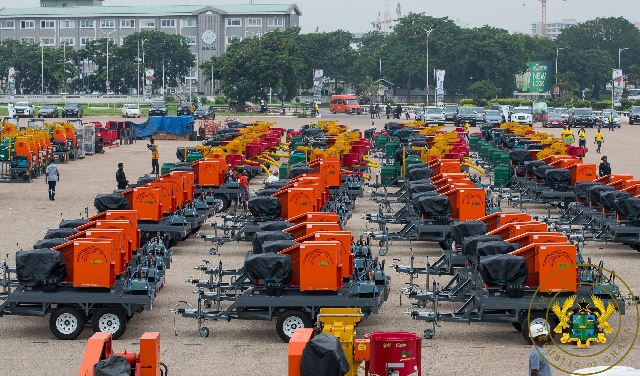
This is because the uncontrolled use and exposure to mercury, aside from contaminating water bodies and destroying aquatic life, can also result in damage to the nervous, digestive, and immune systems.
The President, however, also acknowledged that the small-scale mining sector has been a major vehicle of environmental pollution and land degradation, including the threat posed to life by the use of mercury in the recovery of gold and its subsequent release into the ecosystem.
But, he noted that banning small-scale mining cannot be the solution to this challenge. It is against this backdrop that he said several efforts have been made to ensure a viable, responsible and sustainable small-scale mining sector.
Among these efforts, is the Community Mining Scheme, which has been revamped along with an operational manual that has been developed to promote responsible and environmentally-sound small-scale mining.
The policies and strategies being implemented, according to the Ministry in charge of the sector, are to promote viable businesses for Ghanaians who intend to work in the mining industry while protecting the environment.
“This is part of the broader vision of the government to make Ghana the mining hub of Africa, where all mining and mining-related activities from exploration to downstream production, and from innovation to research, will be centred,” the Minister stated at the ceremony.
The Communications Director of the Ghana National Association of Small-scale Miners, Abdul Razak Alhassan, in an interview, expressed his satisfaction with the new technology.
He highlighted the effectiveness of the gold katcha, stating that it allows miners to retrieve around 90 percent of the gold, compared to the previous method's yield of only 30 to 40 percent.
He lauded the Minerals Commission for digitizing its services, while noting that moving it online makes it easier for the acquisition and application of mining licenses.
Latest Stories
-
‘In Mahama’s era students lacked chalk, but are now receiving tablets’ – Bawumia
4 mins -
Project commissioning not a ploy to attract votes – Oppong Nkrumah
5 mins -
CBG records GH¢1bn revenue in Q3
8 mins -
Mahama vows to create an agro-processing zone in Afram Plains
22 mins -
Political parties should plan for losses, not just wins – IGP advises
23 mins -
524 Diasporan Africans granted Ghanaian citizenship in ceremony
25 mins -
Mahama urges Afram Plains North residents to avoid ‘skirt and blouse’ voting
27 mins -
Asantehene receives more 19th century gold ornament and regalia
34 mins -
Hohoe Ghana Blind Union organises training for members ahead of Election 2024
40 mins -
Alan Kyerematen reveals his future plans for Ghanaian Health professionals
41 mins -
AAIN empowers women and small enterprises in Upper East Region through SHINE project
42 mins -
Akufo-Addo leads nationwide commissioning of 80 educational projects
49 mins -
Ghana and Seychelles strengthen bilateral ties with focus on key sectors
1 hour -
National Elections Security Taskforce meets political party heads ahead of December elections
1 hour -
Samsung’s AI-powered innovations honored by Consumer Technology Association
2 hours

